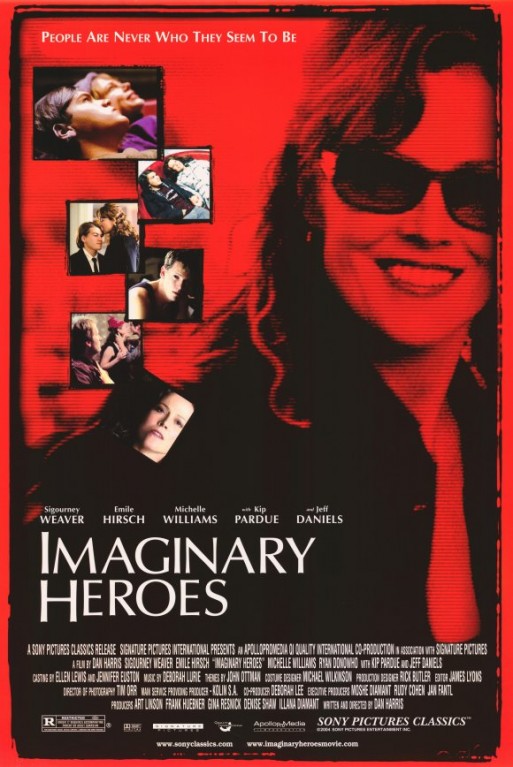“Imaginary Heroes” is director Dan Harris’s 2004 film about a family’s struggle to cope with the suicide of its youngest son. Each of the film’s characters brings a very real, complicated response to the table: there’s the mother Sandy (played by Sigourney Weaver, who truly steals the show) who self-medicates with marijuana and her husband, Ben (Jeff Daniels), whose denial of their son’s death renders him even colder than he already was. Their surviving children, Tim (Emile Hirsch) and Penny (Michelle Williams), have their own unique battles with their grief – and it doesn’t seem to help that their parents are struggling just as much, if not in ways more “immature” than their own.
Of the many ways death tends to be explored in Hollywood films, Heroes takes an admirable path. There’s no air of romanticizing the loss (ex. as with the “Sick Lit” genre), nor is there a well-defined path laid out for each of the characters’ grieving processes. Instead, we see the already simmering tensions in their relationships come to a boiling point after the death of the family’s “star” son, Matt. His death is a shock to everyone – he was well liked at school, resident jock, etc. – and doesn’t have the fairytale effect of “bringing everyone together.” Sometimes, the path towards learning to live with your grief is ugly.
“…we see the already simmering tensions in their relationships come to a boiling point after the death of the family’s “star” son, Matt.”
The reason Harris is able to successfully dive into such an intense plot lies in his decision to use biting – though sometimes cringe-worthy – humor via the ever-dynamic Sigourney Weaver. Her character has been wild from youth, and her dialogue, especially with the youngest son Tim, brings a much needed comic relief to an otherwise heavy film. Because for all of the film’s strong points, it can end up feeling a bit overcrowded in its bevy of
personal dramas.
Imaginary Heroes is certainly not the movie to watch if you’re in the mood for something that leans more towards the calm and sensitive on the subject of coping with death. But it is useful if not for the fact that it looks beyond the event of the death itself, zooming in on the repercussions of loss.
Explore more of SevenPonds’s Lending Insight posts here.

 Imaginary Heroes (2004) by Dan Harris
Imaginary Heroes (2004) by Dan Harris



 “Songbird” by Fleetwood Mac
“Songbird” by Fleetwood Mac
 First the Wealth Gap, Now the U.S. Has a Growing Health Gap
First the Wealth Gap, Now the U.S. Has a Growing Health Gap
 How to Comfort A Dying Loved One
How to Comfort A Dying Loved One














